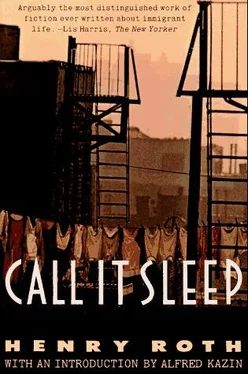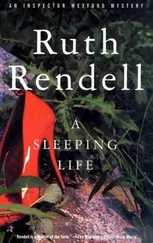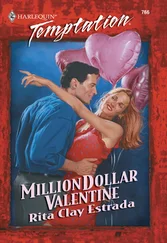— Gee!
He sighed tremulously, lifted his head, and with body pivoting on fixed feet, gazed about him.
The immense heavens of July, the burnished, the shining fathom upon fathom. Too pure the zenith was, too pure for the flawed and flinching eye; the eye sowed it with linty darkness, sowed it with spores and ripples of shadow drifting. (—Even up here dark follows, but only a little bit) And to the west, the blinding whorl of the sun, the disk and trumpet, triple-trumpet blaring light. He blinked, dropped his eyes and looked about him. Quiet. Odor of ashes, the cold subterranean breath of chimneys. (—Even up here cellar follows, but only a little bit) And about were roof-tops, tarred and red and sunlit and red, roof-tops to the scarred horizon. Flocks of pigeons wheeled. Where they flew in lower air, they hung like a poised and never-raveling smoke; nearer at hand and higher, they glittered like rippling water in the sun. Quiet. Sunlight on brow and far off plating the sides of spires and water-towers and chimney pots and the golden cliffs of the streets. To the east the bridges, fragile in powdery light.
— Gee! Alone … Ain’t so scared.
VI
WHEN he came down from the roof a little while later, he crept down a few steps toward the floor below his own. He would stamp up just before he entered his house, stamp toward his door. It would make his coming home seem more natural. He did so.
His mother looked strange when he entered — so strange that for a moment, he thought his ruse had failed, he thought himself discovered. But another glance reassured him, and yet while it reassured him on one score troubled him vaguely on another. It wasn’t awareness or alertness or suspicion that was the cause of that glow in her features, that calm, but something else, something he scarcely ever remembered seeing before — an obscure lassitude, a profound and incomprehensible contentment. What was it? What made the hand that had placed a finger across her lips, warning him that he had made too much noise, come down so slowly and with such peculiar, self-conscious grace as though her whole body found a relish in the very movement of her limbs, and relishing, lingered. It touched a chord of memory within himself, touched it with finger tips — Some thing he had done, felt? What? The wisp of a stir within his beign faded before the mind could fasten on it. It was baffling. He looked about the kitchen. The bedroom door was closed — his father was asleep. And on the wash-tub lay a bulky package, the strings cut, but the heavy brown paper still covering it; and beside it, crossing each other, a new white-handled whip and the butt of the old broken black one. He felt his legs stiffen, brace against the sudden undertow of terror. He turned away. His mother had lowered the finger from her lips and greeted him. (But where were the outstretched arms she always met him with?) And then she smiled. (But was that smile for him or for that inner languor that suffused and harmonized her spirit?) His eyes darted to the parcel and the whips on the washtub and then returned to her — questioningly. She seemed to avoid his query, and asked instead:
“Why is your nose so sunburned? Where have you been?”
The wonder that her singular appearance had produced within himself almost lowered his guard. He came within a breath of telling her the truth — but stopped himself in time. “On the sidewalk.” His eyes wavered between her waist and the linoleum. “We were all sitting. It was hot.”
“Your father’s bought a new whip,” she smiled. “Is that what you wanted to ask me?”
“N-no.”
“Oh, no? I thought you were just dying to ask me if you could have the broken one. Perhaps Albert will give—”
But he was already shaking his head. (It was hard not to be violent, not to be vehement all the time. Sometimes the hoops of caution almost snapped.)
“What’s that?” he pointed to the parcel. “Can I look?”
“Why, of course! But I warn you,” she laughed, as she went over to the wash-tub, “this time it’s really a big surprise!”
There was an old overtone in her words, but he was too experienced now to ask, “Is it for me?” Instead, he merely lifted the heavy wrapping-paper flaps — and stared and blinked and stared again! At his back he heard her expectant laughter. Before him on a shield-shaped wooden plaque, two magnificent horns curved out and up, pale yellow to the ebony tips. So wide was the span between them, he could almost have stretched his arms out on either side, before he could touch them. Though they lay there inertly, their bases solidly fastened to the dark wood, there pulsed from them still a suggestion of terrific power, a power that even while they lay motionless made the breast ache as though they were ever imminent, ever charging.
“And those?” her voice was bright with amusement. “Do you know what those are?”
He gaped at her. “A — a c-cow,” he stuttered. “In pictures I saw them. And — and when Aunt Bertha took me to the moving pitchers.”
“A cow, but a he-cow!” she laughed. “A bull. I don’t know whether you ever saw one even as an infant in Austria. They were monstrous — walls of flesh and strength.”
“Did he buy it?”
“Why yes, of course. When he bought the whip.”
“Oh! Is that why he got it?”
“Why yes, it reminded him of the time when he took care of cattle. You see,” she explained, “When your grandfather — his father — was overseer of the baron’s yeast factory, he put Albert in charge of the cattle. They fed them on mash — but you’ve already heard him speak of that.”
“What’s he going to do with them?” he asked after a pause.
“Hang them up of course. In the front-room.” Her eyes wandered to the picture of the corn flowers on the wall. “He couldn’t find a nail strong enough.”
He was silent. Somehow he couldn’t quite believe that it was for memory’s sake only that his father had bought this trophy. Somehow looking at the horns, guessing the enormous strength of the beast who must have owned them, there seemed to be another reason. He couldn’t quite fathom it though. But why was it that two things so remote from each other seemed to have become firmly coupled in his mind? It was as though the horns lying on the wash-tub had bridged them, as though one tip pierced one image and one tip the other — that man outstretched on the sidewalk, that mysterious look of repose in his mother’s face when he had come in. Why? Why did he think of them at one and the same time. He couldn’t tell. He sensed only that in the horns, in the poised power of them lay a threat, a challenge he must answer, he must meet. But he didn’t know how.
VII
WHEN David thought of the roof the next morning, he thought of it with so peculiarly selfish a joy that it kept him from thinking any further. The roof, that precinct in the sky, that silent balcony on the pinnacle of turmoil, demanded that what thoughts one had be had there. He culled them, sorted out what he would think when he got up there — he would allow them to blossom once he had climbed up the stairs. And a little while later he was there. What sounds from the street, what voices drifted up the air-shafts, only made his solitude more real, the detachment of his reveries more delightful.
He had found an old, weather-beaten box lying in the shady side of the roof-stair housing and he had been sitting there some time watching his thoughts uncurl when the creak of a door somewhere startled him. His first thought was that Izzy or Kushy were coming up again in order to see what they had seen before. And listening to the tread of feet on the squawking tin, he sat there rigidly, gritting his teeth in fury. What right had they to come up again, to torment him after he had found a little peace? Would they drive him out of every place he went, every retreat? He wouldn’t let them! He wouldn’t let them look down his air-shaft again. He’d fight, he’d scratch, he’d kick! Hidden behind the shed he listened a moment longer. Footsteps were followed by another sound — a hollow scuffing noise as of feet scraping up a fence. Then the tread again, but now no longer on the tin. Who was it? He heard a fluttering whirr. Faint taps. The slight, taut snapping of a stretched string. That couldn’t be them. What was it? Cautiously he peeped around the edge of the shed—
Читать дальше












